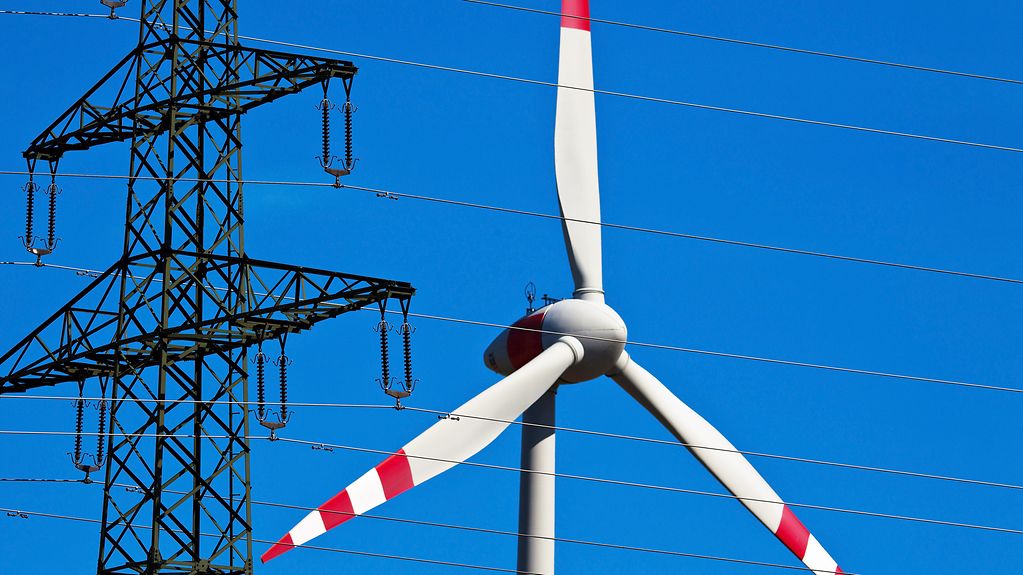Energy and Climate Fund
Even after Germany ends the use of nuclear power in 2022, sustainable energy supplies are to be ensured. To this end the German government has now increased funding for the Energy and Climate Fund. A total of 4.5 billion euros are to be made available for 2019.
4 min reading time

Climate-friendly power - renewables including wind power
Photo: COLOURBOX
The funds are to be used to enhance energy efficiency in trade and industry, to push ahead with the transformation of the country’s heating networks, and to attract battery cell production to Germany. 3.7 billion euros, or 83 per cent, will come from the budget of the Federal Ministry for Economic Affairs and Energy. Revenues from the auctioning of greenhouse gas emissions certificates will also contribute to the government’s expenditure.
In 2011 the German government established the Energy and Climate Fund with a view to implementing the energy shift, the move to put Germany’s energy supply on a more sustainable footing. The funding is agreed annually. While the Fund was granted 780 million euros in 2012, this sum rose to 3.3 billion euros in 2013, and has this year reached 4.5 billion euros. The cash is channelled into a number of different measures:
- Renewable energy
- Investments in energy efficiency including building modernisation
- National and international climate change mitigation
- Environmental projects and research
- Electric mobility
- Electricity price compensation for electricity-intensive businesses
- Expanding the National Action Plan on Energy Efficiency.
Energy storage and grid technologies
Some projects funded by the Energy and Climate Fund involve energy storage and grid technology. The background is that if the energy shift is to work, new ways must be found of transporting and storing power in order to guarantee reliable supplies in future too. Project promotion aims to make available a wide spectrum of competitive power storage technologies for electricity, heating and other forms of energy in the long term. For 2019 the Federal Ministry for Economic Affairs and Energy is setting additional new priorities in the industrial manufacture of energy storage cells for mobile and stationary use. More support is also to be accorded to battery cell production.
Energy efficiency
In order to achieve Germany’s energy and climate goals, primary energy consumption must drop by 50 per cent by 2050. To achieve this goal it will be crucial to enhance energy efficiency. In 2017 the government published a comprehensive funding strategy for energy efficiency and heat from renewables. It aimed to reorganise, focus and tailor budget-funded support measures to promote energy efficiency. The Energy and Climate Fund also provides financial support for energy efficiency measures.
Upgrading building to cut CO2 emissions
The CO2 building modernisation programme is a major factor in the energy shift and a key instrument in the German government’s moves to achieve its climate and energy targets in the building sector. By 2050 buildings are to be practically climate neutral, i.e. they are to meet their energy needs solely from renewable sources. Since 2012, all new funding support pledged under this programme has come from the Energy and Climate Fund. In this way, two billion euros are channelled into making the country’s building stock more energy efficient every year.
Electric mobility
By 2050 final energy consumption in the transport sector is to be reduced by about 40 per cent of the 2005 level. To achieve this, the German government launched the government programme for electric mobility. By 2020, there are to be one million electric cars on German roads, and this figure is to rise to 6 million by 2030. The German government is to provide Energy and Climate Fund finance for research and development work under this programme.
Electric mobility reduces air pollutants and noise.
In addition, the Federal Ministry for Economic Affairs and Energy is creating additional incentives in the form of purchase grants and an improved charging infrastructure.
Promoting research in the field of renewable energy
To drive the expansion of renewable energy, the German government will be investing more in research and development in the field of energy technology.
Energy research offers the opportunity to achieve energy and climate goals more effectively, more rapidly and at a lower cost, while enhancing Germany’s international technological competitiveness. Germany is already an international trailblazer in this field.
Because energy research is so important, it will no longer be funded as part of the Energy and Climate Fund as of 2019. Instead, an individual budget item will be dedicated to energy research. This year, about 773 million euros will be earmarked for energy research and research into the safety of nuclear plants.